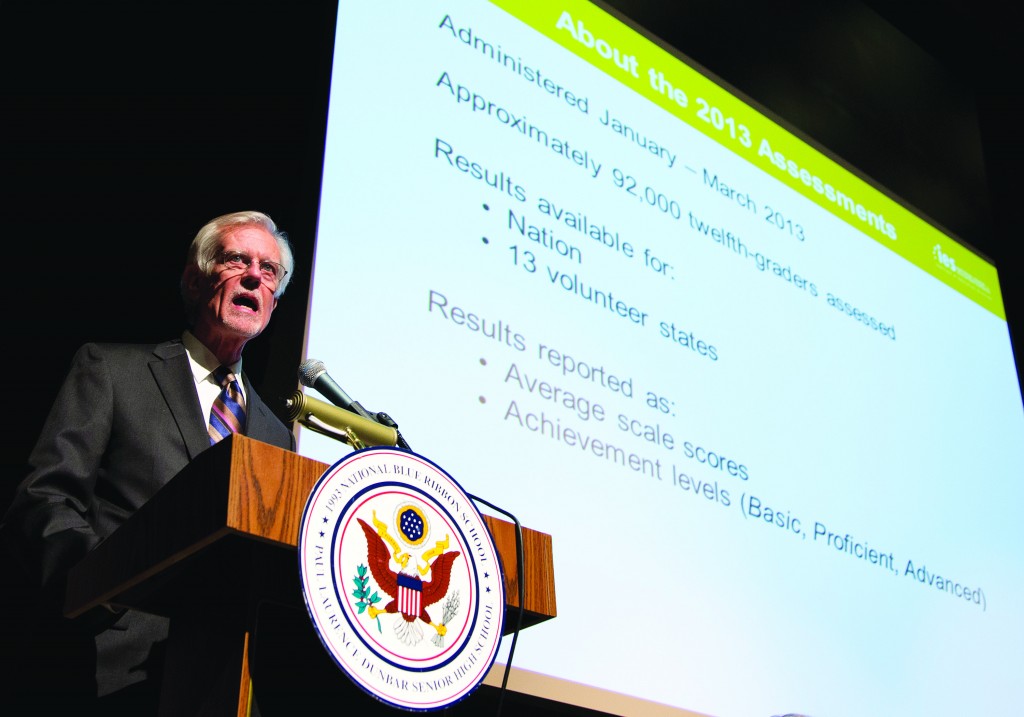No Gains for 12th-Graders On National Exam

Handing out dismal grades, the Nation’s Report Card says America’s high school seniors lack critical math and reading skills for an increasingly competitive global economy.
Only about one-quarter are performing proficiently or better in math and just 4 in 10 in reading. And they’re not improving, the report says, reinforcing concerns that large numbers of today’s students are unprepared for either college or the workplace.
Scores on the 2013 exam in both subjects were little changed from 2009, when the National Assessment of Educational Progress was last given to 12th-graders. The new results, released Wednesday, come from a representative sample of 92,000 public and private school students.
The report follows the just-released and seemingly more encouraging research that U.S. high school graduation rates in 2012 reached 80 percent, a record.
One possible explanation is that lower-performing students who in the past would have dropped out of school are now remaining in the sampling of students who take the exam, said John Easton, acting commissioner of the Education’s Department’s National Center for Education Statistics.
Wednesday’s results are likely to embolden supporters of the Common Core standards that are being rolled out in 44 states and the District of Columbia. Designed to develop critical thinking skills, they spell out what math and English skills students should master at each grade.
There have been political storms in many states over the standards, which were pushed by governors who were concerned about the skill levels of their high school graduates. Opponents say the standards have a federalist bent and are untested.
Bob Wise, president of the Alliance for Excellent Education and a former governor of West Virginia, said the new national results speak to a “desperate need for the aggressive implementation” of the standards.
In reading, the 38 percent share of students performing at or above the proficient level was lower than when the assessment was first given in 1992, when it was 40 percent. Scores have remained similar since 1994.
Past comparisons in math date only to 2005. Scores had increased from 2005 to 2009.
This article appeared in print on page 2 of edition of Hamodia.
To Read The Full Story
Are you already a subscriber?
Click "Sign In" to log in!

Become a Web Subscriber
Click “Subscribe” below to begin the process of becoming a new subscriber.

Become a Print + Web Subscriber
Click “Subscribe” below to begin the process of becoming a new subscriber.

Renew Print + Web Subscription
Click “Renew Subscription” below to begin the process of renewing your subscription.












